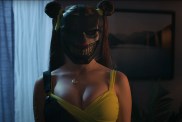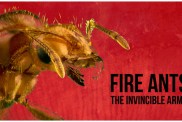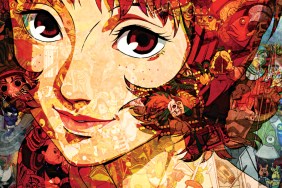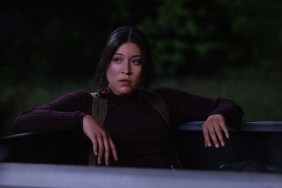
Andrei Tarkovsky doesn’t exactly have the largest filmography, but it’s a well respected one that I am only beginning to explore. I’ve seen Solaris and his final film The Sacrifice, but haven’t yet taken the time to explore such highly regarded films as Andrei Rublev and Stalker. With so few feature films to his credit, you’d think it would be easy to see them all, but considering the two I just mentioned clock in at over 160 minutes each (205 for Rublev) I want to be sure I watch them uninterrupted once I give them the chance.
This brings me to Criterion’s latest Blu-ray presentation of Tarkovsky’s feature film debut, Ivan’s Childhood, and while watching, three things came immediately to mind, 1.) Ingmar Bergman, 2.) Robert Rossellini‘s Germany Year Zero and 3.) the mixture of religious imagery and destruction as seen in Ashes and Diamonds.
When it comes to Bergman, the visual comparisons are obvious, from the rich, textured faces to the use of dream sequences interspersed within the dramatic narrative of a 12-year-old Russian boy navigating through the ravages of World War II, his haunted past and mother’s death.
Bergman was quoted speaking of Ivan’s Childhood saying, “My discovery of Tarkovsky’s first film was like a miracle. Suddenly, I found myself standing at the door of a room the keys of which had, until then, never been given to me. It was a room I had always wanted to enter and where he was moving freely and fully at ease.”
As much as Ivan’s Childhood has that dreamlike quality, it also touches incredibly close to reality and the protagonist here quickly reminded me of the young 12-year-old child at the center of Rossellini’s Germany Year Zero. I don’t think it’s too much of a stretch to say the film feels like a close compatriot to Rossellini’s 1948 neo-realist feature, which, for me, was the most powerful of his War Trilogy.
And when it comes to the Ashes and Diamonds comparison, it’s a loose memory of Andrzej Wajda’s 1958 film and more of a visual one when it comes to the destruction of the world around Ivan’s Childhood‘s protagonist, a young boy making his way through World War II following the death of his family. He works as a spy and does well considering he’s only 12-years-old and would never be suspected. The narrative takes a turn when one of three officers vying to care for him decides it best to send him to military school, Ivan runs away and it’s here that the ravaged countryside finds a direct comparison to what is found in Wajda’s film. The cover art alone is enough to draw a comparison. I have yet to explore all the features on the disc, though I do know comparisons to Bergman and even Ashes and Diamonds are made within, though I’m curious to see if a similar comparison to Rossellini’s work is made.
The one curious thing I found about the entire feature was Tarkovsky’s use of sound and that of dripping water specifically. It’s quite prominent and I suspect largely due to his interpretation of the bunkers the men were staying in, but also more of an audible reminder of Ivan’s mother whom we see in a dream sequence peering down a well with her son and later dead beside it and splashed with water.
When it comes the Blu-ray treatment, Criterion has nailed it as this, now 51-year-old, film looks flawless. The picture is pristine, maintains an excellent grain structure and sound is phenomenal. One particular scene featuring Ivan as he trudges through a watery marsh is especially beautiful to look at, but also to listen to as a flare falls into the water near him and bubbles beneath the watery surface. Another great visual sequence comes in the middle of a forest of birch trees, which soak up the black and white image, creating a scene as beautiful as the lush green bamboo forests in Yimou Zhang’s House of Flying Daggers.
Features on the disc include an interview with film scholar Vida T. Johnson (co-author of “[amazon asin=”0253208874″ text=”The Films of Andrei Tarkovsky: A Visual Fugue”]”) and interviews with cinematographer Vadim Yusov and actor Nikolai Burlyaev. I watched only a brief portion of the interview with Yusov, which was very poor quality in terms of audio, the interview with Johnson, however, was quite informative.
As for a recommendation, I think the films and filmmakers I’ve compared Ivan’s Childhood to should give you a good idea if this is up your alley, though I would say if you’re interested in getting into the classics this would be a great start. This film has plenty to chew on and dissect, but can just as easily be enjoyed by anyone that appreciates art house film. I highly recommend it.









